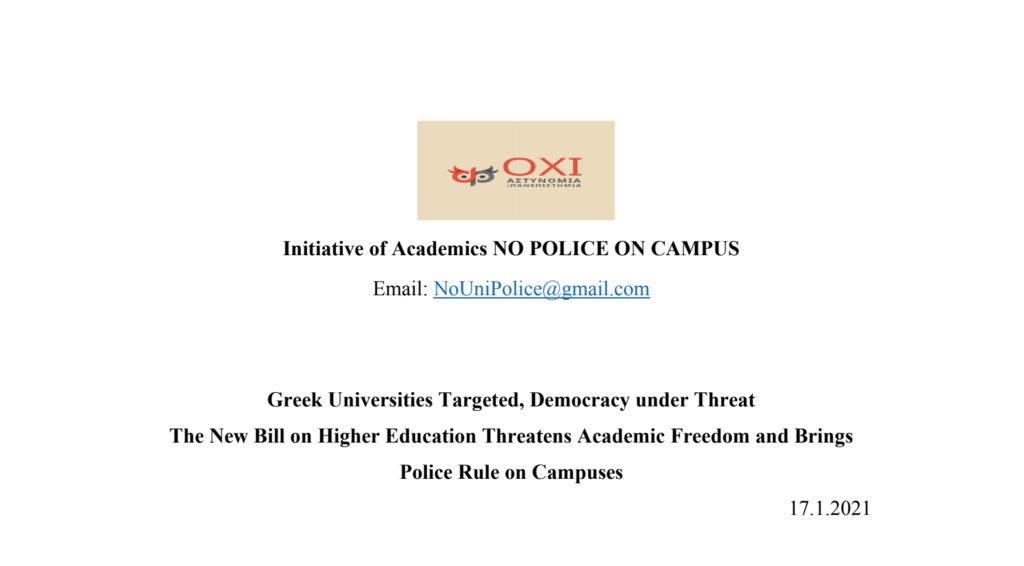Responding to a question about future of the MBA (Master of Business Administration) in the wake of the pandemic, the Dean of a top program recently suggested that “the future is bright,” but would require “a fundamental rethinking of business education. When the MBA was first established a century ago, there was a real sense that we would be forming leaders of business and society, a focus on forming values. I see a return to that earlier concept of business education.”
Just prior to the onset of the pandemic, MBA applications were sharply down, business and popular press were declaring the death or obsolescence of the MBA, and business programs were scrambling to reinvent themselves. But what a difference a global pandemic makes. My comments here build on ethnographic research conducted in MBA programs prior to the COVID-19 pandemic as well as a recent sampling of online informational forums for MBA applicants, program websites, and business media to examine the ways MBA administrators are reframing the value proposition of the MBA, marketing the degree as a necessary feature of the “bright future” of capitalism after COVID.

MBA programs are zombies: always returning from the dead. Their death is announced every few years, usually correlated with scandals or catastrophes tarnishing the capitalist brand. But the MBA cheats death through periodic reinventions. Indeed, the legitimacy of the MBA and its purchase on civic life in the US has been an open-ended project from the founding of the degree just over a century ago.
The early 20th and 21st centuries are productive bookends for thinking about this. There are intriguing parallels of economic and social disruptions, transformations in globalization, epochal technological changes, and, of course, experiences of global pandemics. But rather than thinking with the Dean about these parallels, I want to highlight some salient differences in the anticipatory rebranding of the post-COVID MBA. Thinking against the grain of the Dean’s hearkening back to origins elucidates a sleight-of-hand in current directions in MBA training – having to do less with a reanimation of the early 20th century specialist manager, than with “his” disappearance.
Producing Managerial Subjects
A common misperception of MBA training is that the students learn nothing; the programs are merely credentialing exercises providing entrée to elite business networks. But, as I’ve argued in a recent ethnography of MBA training in US business programs, MBAs get more than they bargain for (Orta 2019). MBA programs present highly distilled versions of the concepts and habits of capitalism. Course content is simplified, to be sure, but this streamlining takes on compelling depth through the cascading reinforcement of material across the curriculum. Programmatic simulations of professional life further instill a habitus of fast-paced decision-making in overscheduled conditions, based upon imperfect information. MBAs learn to frame the necessity of this simplification as an index of “hard work,” for which they should be highly compensated.
MBA programs have developed an additional value proposition: technical skills are not enough; an effective capitalist leader requires “talent.” MBA programs sell themselves as spaces for the cultivation of talent, helping students become better versions of themselves to be more effective versions of “the MBA.” The “x-factor” of talent is cast as the necessary supplement to the shortcomings of technical business teachings when faced with the real world. And the connections of the MBA to the technical operations of capitalism as a systemic form of profit extraction are increasingly masked by the rhetoric of talent as a driver of corporate success – a talent theory of value.
MBA Programs on the Eve of COVID
On the eve of COVID, MBA programs were dying—reeling from a set of compounding crises, including the Great Recession and MBA complicity in the runaway financialization that led to it. A season of institutional soul-searching spurred updated curricula and non-finance focused program tracks. A second crisis involved MBA programs’ increasing dependence over recent decades on international student enrollments. The visa policies of the Trump administration triggered a precipitous drop in international MBA enrollments. Some programs closed; others rolled out a variety of online degrees aimed at a broader pool of international and domestic students.
The Continuous Reinvention of the MBA
Such challenges and changes were business as usual. The arc of MBA education has been a continuous project to legitimize and reinvent the MBA idea across a series of scandals, crises, and transformations of capitalism, beginning with the founding of collegiate business degrees at the turn-of-the-20th century. Seen as lowering institutional standards with vocational school commonness, nascent business programs sought to emulate more established programs in law or medicine. And they tapped into an intensifying cultural sense of “business” as a discrete realm and a driver of an American modernity (Cruikshank 1987, Daniel 1998).
While the earliest iteration of the MBA curriculum was thus tightly connected to claimed civic needs, those needs were in the service of a still emerging order of extractive capitalism. By the 1930s, the corporation could be taken as standing for a particularly “American” modernity and generative of what came to be seen as the American way of life (Berle and Means 1932, Chandler 1977). MBA programs connected their mission explicitly to serving this process (e.g., Johnson 1906, Donham 1931).
By mid-century, business education was an established part of the landscape of higher education in the U.S. “The MBA” was a recognizable avatar of capitalism, albeit a shifty one: subject to recurring reinventions in the face of critiques, challenges and crises over the post-War decades and beyond – including the fallout from 2009 and the enrollment crisis (e.g. Drucker 1950, Gordon 1959, Pierson 1959, Petriglieri 2012).
The MBA Value Proposition for a Post-COVID World
The MBA responses to the post-2009 and post-2016 challenges positioned the programs well for the COVID years. Flexibility in delivering the MBA was already becoming a habit as many programs developed online and hybrid MBAs to maintain access to international students as well as employed domestic students. “Rigor” is a new keyword as recruiters legitimate the online programs; there is now a separate infrastructure of rankings for online MBAs, reproducing the bounding and marketing mechanisms of the traditional programs.
“Diversity” is another keyword. Business schools continue to struggle with gender and, especially, racial inclusion and equity among students and faculty—a concern linked increasingly by administrators and business trade publications to BlackLivesMatter and the disproportionate impact of the COVID-19 pandemic on communities of color in the U.S. However, while many programs report statistics along lines of gender and race, the emphasis of much of the recruitment materials I have reviewed is on the “diversity” of professional fields represented in a cohort. This follows from post-2009 efforts to distance the MBA from finance. Deans now say things like: “many of our students come from homogenous worlds, but their classmates have a diversity of professional experiences in different careers.” Students echo the pitch, describing the ways the “MBA experience of working with people outside of your industry broadens horizons.”
As MBA programs recruit for the post-COVID world, they are most aggressively selling their “transformational” impact on students – often downplaying traditional functional training in business. “Transformational impact is the mission,” said one Dean, adding, “Our realization is that a lot of that impact will not come from the classroom only.” Students describe their “MBA journey” similarly, stressing how the degree allows them to “view things more holistically.” “The MBA program forced me to look at what I value,” reports one student. Others describe a growing sense of “confidence,” and tell prospective applicants, “the MBA helps bring more you into the world.”
While the MBA may help bring more you into the world, it does so in coordination with a curious managerial self-effacement. There is a lot of talk about teams and the value of delegating decisions to local levels. This squares with neoliberal the rhetoric of decentralization and agility, and is familiar from existing MBA emphasis on entrepreneurial talent and soft skills.
But there is something more in the mix: the disruptions and anxieties of the pandemic. Students are “rethinking what they are doing.” Programs now promise “lifelong career coaching” for careers of change and uncertainty. And at a time when routinized neoliberal truths of business are explicitly up for debate, MBA programs stress the importance of humility, of not knowing what to do, as a facet of leadership in uncertainty.
The focus on talent and leadership skills increasingly downplays the relevance of core functional practices of managerial capitalism. They are mentioned – usually as part of the effort to show the “rigor” of online programs. But current marketing of the MBA underscores an ascendant conceptualization of talent that eclipses the core disciplines of capitalist extraction and harnesses the post-COVID business leader to a differently imagined project.
MBA marketing explicitly positions the talented MBA as the solution to a set of social and political crises exacerbated by the pandemic. “Leadership is more important than ever,” commented one Dean as he described a three-fold crisis facing the post-COVID US: “health, economics, and inequality.” Further, he laments, increasing polarization from before the pandemic has led to a loss of trust in governmental and non-governmental institutions, which “typically provide the safety net in times of crisis.” Thus, he identified a fourth post-COVID crisis: “leadership.”
That amounts to a familiar reading of the times. But he caught my attention when he went on to say, “But the level of trust has gone up dramatically in the business community. This is a great time for the business platform. An opportunity that goes well beyond anything that has been there before. […] We can now tackle issues that go beyond traditional profit and loss. We can have a bigger impact on society. [T]he expectation is there that business will step in.”
This goes beyond a post-2009 trend in business schools to link business to transformative social solutions through electives in social entrepreneurship or sustainability. Those turned on a familiar vision of doing good through doing well (in business) and have spawned a host of metrics to measure (and therefore manage) social impact in familiar business style. The Dean’s comments decouple the impact of business leadership from the fundamental operations of business and gesture to political governance in ways that have not been an explicit part of the MBA project – at least with reference to the US.
There is good strategic reason for this shift, as the post-pandemic economy seems likely to be characterized by continuing changes in the neoliberal alliance of governing policies and capital. As BlackRock CEO Larry Fink puts it in his most recent annual letter to CEOs,
“COVID-19 has also deepened the erosion of trust in traditional institutions and exacerbated polarization in many Western societies. This polarization presents a host of new challenges for CEOs. […] In this environment, facts themselves are frequently in dispute, but businesses have an opportunity to lead. Employees are increasingly looking to their employer as the most trusted, competent, and ethical source of information – more so than government, the media, and NGOs.”
Other guidance for the post-pandemic economy makes a similar point: “beyond building resilience in busines and the economy, public and private leaders must also build societal resilience.” As MBA programs are marketing themselves to prospective applicants whose concerns are shaped by the crises listed by the Dean, this message of civic leadership seems resonant.
The pandemic has made the contradictions of capitalism visible in new ways, including accelerating levels of inequality. While this has opened up new conversations about equity and governance and provoked commentary on the expanding job description of the CEO, there is no indication that extraction of profit is not still the name of the game. Yet, in marketing the MBA for the post-COVID world, there is a sleight-of-hand by which the extractive operations of capitalism are screened from view. This may be the apotheosis of the manager-turned-leader, as the training of capitalist managers has progressively erased direct reference to the technical ends of managerial capitalism.
MBA programs have long been adept at repackaging themselves to weather crises, and scandals. Along the way they have shaped an ideal of the capitalist manager that balances the technical operations of capitalist industry with the softer skills and innate qualities of leadership – even entertaining the claim that MBAs don’t really learn anything of functional importance from their programs. As they turn to their “bright” post-COVID future, MBA programs are continuing a longer project of producing the disappearing manager.
Andrew Orta is professor of Anthropology at the University of Illinois at Urbana-Champaign. He is author of Making Global MBAs: The Culture of Business and the Business of Culture (California, 2019).
References
Berle, Adolf A., Gardiner C. Means. 1991 [1932]. The Modern Corporation and Private Property. Reprint edition. New Brunswick, N.J., U.S.A: Transaction Publishers.
Chandler, Alfred. 1977. The Visible Hand: The Managerial Revolution in American Business. Cambridge: Harvard University Press.
Cruikshank, Jeffrey L. 1987. A Delicate Experiment: The Harvard Business School 1908-1945. Boston, Mass: Harvard Business Review Press.
Daniel, Carter A. 1998. MBA: The First Century. Bucknell University Press.
Donham, Wallace Brett, and Alfred North Whitehead. 1931. Business Adrift. Whittlesey House, McGraw-Hill.
Drucker, Peter Ferdinand. 1950. “The Graduate Business School” Fortune 42 (August 1950): 92-116.
Gordon, Robert Aaron, and James Edwin Howell. 1959. Higher Education for Business. Columbia University Press.
Johnson, Joseph French. 1906. “The Business School and What It Should Do.” The New York Times, September 15, 1906 page 9.
Petriglieri, G. 2012. “Are Business Schools Clueless or Evil.” Harvard Business Review Blog Network.
Pierson, Frank Cook. 1959. The Education of American Businessmen: A Study of University-College Programs in Business Administration. McGraw-Hill.
Orta, Andrew. 2019. Making Global MBAs. The Culture of Business and the Business of Culture. Oakland, California: University of California Press.
Cite as: Orta, Andrew. 2022. “The MBA won’t die. But it is trying to disappear.” FocaalBlog, 30 March. https://www.focaalblog.com/2022/03/30/andrew-orta-the-mba-wont-die-but-it-is-trying-to-disappear/

